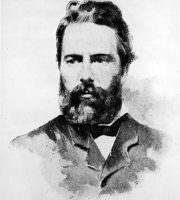by Steve Orlen
What ever became of the people from the 1960's?
What happened to the young man
From a well-off family in the east,
Who had tried college and found it wanting?
Each night waxing and polishing
The hallway foors of the English Department,
Where I was, and still am, teaching,
He looked very busy, all the labor
Concentrated in his narrow shoulders,
Trying to both control and let loose
The heavy polishing machine in its back and forth
Swathing across the linoleum, a hippy, long-haired,
An unlikely night maintenance man, making a mirror
Which would become dirty and blurred
Again in a week, and I deemed him purer,
More innocent than I.
Once, he rapped
At my office door and showed me his poem,
Hand-written, on the several lined sheets
Of a yellow legal pad. It was terrible stuff, more
Manifesto than poetry, full of
The powerful felings of political expedience
In the guise of political commitment.
I suggested that he put a waterbed in one line,
And the roach of a marijuana cigarette
In another, and that tall, sensual, homely girl
We both knew from the bar
We all used to drink and play pool at, in another,
And to inchude the dark spaces between her teeth,
For which he thanked me profusely,
Thinking me an expert. Then I suggested
That he not use the world revolution
In its commonly-used sense
Of replacing the Government of Old ldeals
With the Government of New ldeals,
But as a word for change, as in rotation,
Like a fan belt, or a wheel:
How everything goes around and comes around,
As the working people he admired would say.
And although he looked hurt,
He thanked me for that, too.
I never saw him again, either in the English Department
Now called the Department of English, or in the bar
We hung out in, still called The Shanty,
At that time filled with the poets and painters,
The street people who arrived from everywhere in America
Just to hang out and be, and the few elderly pensioners
From the neighborhood who thought we were crazy
But loved it all, for the coursing energy
Fueled by the music, the drugs and the sex
You could almost smell it was so easy.
Tonight,I sit in my same office,
Hearing the same heavy, humming, swish swish
Of the polisher in the hallway outside my door.
Strange, how memory works, how it serves us
And doesn't serve us. Hopefully, the scientists
Will never lay bare the gears and pulleys of its chemistry.
Strange, also, poetry, how, as with memory,
You start with a first thought, a gist,
A ghost of a question, and you wonder
Where it's headed. For example, will that tall homely girl
Grow up to be a woman? Will she get her teeth fixed?
Will she remember us who secretly desired her,
Homeliness and all? How much of the brain's chemistry
Is narrative and how much imagination
Nudging narrative along? What is it
The poem is getting at? The nature of work
Or the nature of change? The transience of ideology
Or the poetry of transience?
...
Nor Mr. Lavender making soap. Nor does anyone remember
Herr Gross, the fat man who stood in line waiting for
The greedy minions of the fanatic Empress Maria Theresa
To take his money and bestow upon him a name
To be passed down to fat and skinny children alike.
And if a man were even poorer, and asa mean joke,
He might be called the German equivalent of Grease,
Or Monkey Weed or Do Not Borrow From or Gallows Rope.
In Russia, in 1802, to raise an army, Czar Alexander
Sent out a ukase ordering each Jew to take a last name-
It must have been like writing a poem, mind-sprung
And wholly inspired on first draft, then inscribing it
On the forehead of a neighbor, each one befitting
Eiseman, for He Who Laughs, or Mazal, Lucky Man,
Or Trubnic for Chimney Sweep, or Soroka The Magpie,
Meaning The Gossip. And babies in those days
Were sometimes given ugly names to turn aside
The assiduous, bureaucratic Angel of Death;
Or, in illness, a child was renamed to befuddle
The same angel coming down with his empty sack
To collect for God's heavens. But naming the snow,
Each flake, each deliquescing cryptic coat of arms,
That would be a game for only the most inventive,
Hopeless man. For after all, the snowflakes
Are the soon-to-be-dead, those who float awhile
Then fall and, merging. pile up like corpses
On some northern battlefield, and there melt, flow
Down as water to the river that has one name only.
It so happens it's snowing where I'm standing now
At a bus stop in Oslo, between one moment and the next,
Feeling nostalgic, homesick, trying to remember the names
Of everyone I've ever known. Hopeless, of course.
So it worries me that my son, who is more like me
Than I care to think about, could recite the names
Of each child in his kindergarten class after only one week
Of sitting with his hands folded on his desk.
He wasn't praying, he told me. He was waiting
For the names to sink in so one morning he could say,
Suddenly, to each one, Hi, because it's good
To be remembered. By the time we are old
We can baptize each flake before the bus arrives.
There are so many people to know by name,
So many... They grew away from me.
They became snow, fuzzy at this distance,
Just beyond my reach, waiting to be called upon again.




